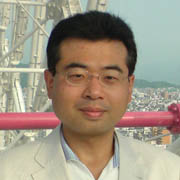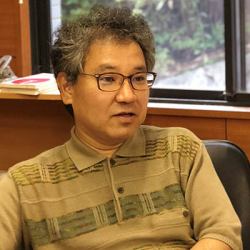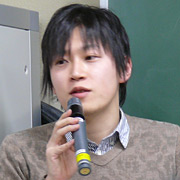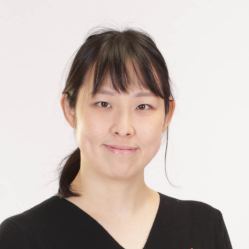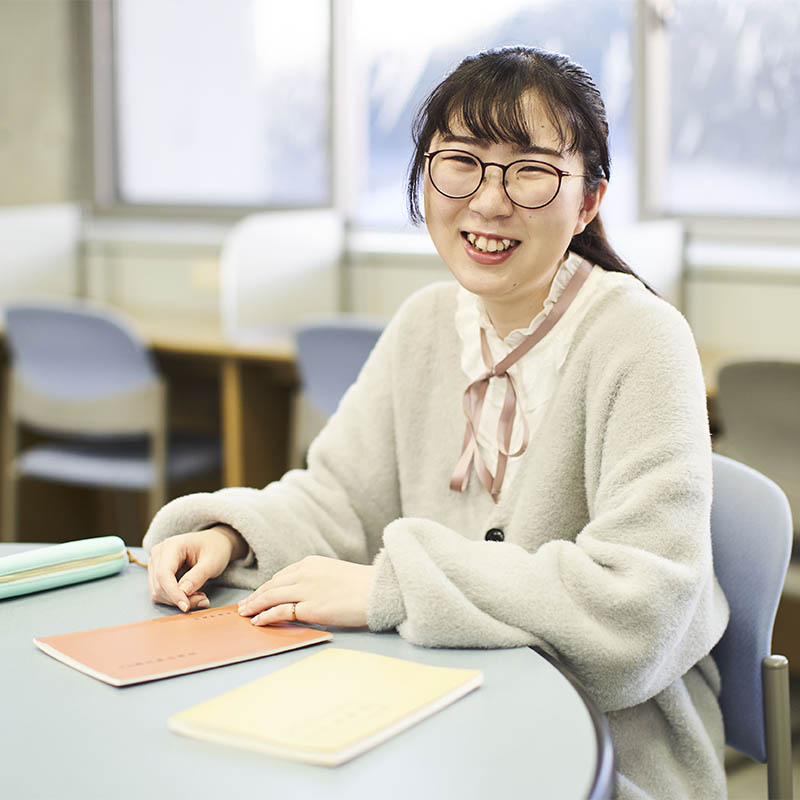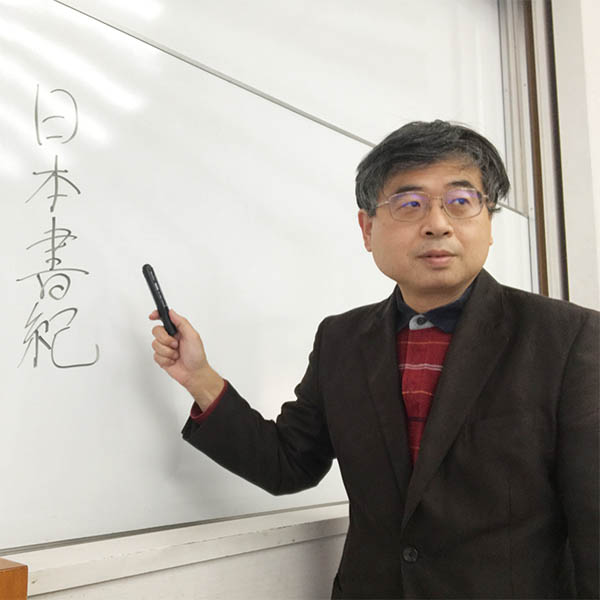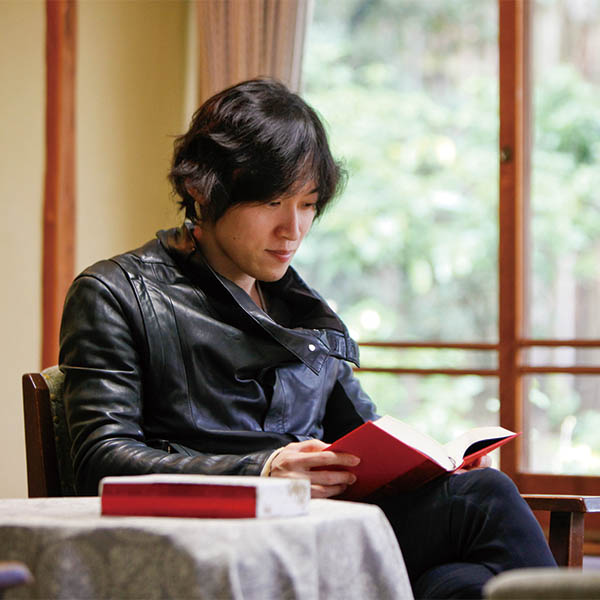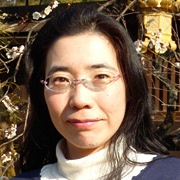
ESAKA Yukiko
- Specialization
- Japanese Heian Literature / Classical Japanese and Chinese Poetry

Students refer to numerous works of literature to analyze literary forms and study theories of classification.They further deepen their understanding by considering the ability of literature to reflect and convey to later generations the reality of past periods and societies through descriptions of characters' appearances, environs, psychology, and unconscious behavior.
For generations, regions of Tohoku have passed down the horrors of past earthquakes and tsunamis to the present day.In this lecture, students look primarily at such traditional Japanese folk tales and consider their nature, history, and contemporary significance.
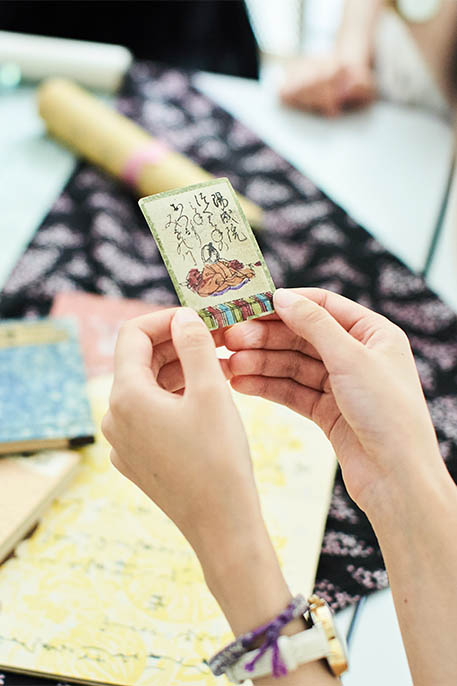
Study aspects of all four courses
In their first year, students do not focus on one specific course but learn the basics of literature, history, society, and Japanese culture.They explore topics that interest them while learning about the structure of modern society and the building blocks of culture.
Understanding yourself through broad-based learning and language
Students deepen their understanding of themselves and others through language.Students learn the skills needed for research starting with the basics, including picking a suitable topic from among their interests, reviewing past research and conducting fieldwork, and logically summarizing and presenting their ideas.
Deepening your understanding of your specialization
In year two, students choose to specialize in one of four courses: Literature, History, Society, and Japanese Culture.Students develop their skills under academic supervisors with specific areas of expertise through lectures that cover introductory topics or cultural history and practical exercises such as literature readings in class.
Learning research methodologies in seminars
Students explore their research topics in small-group seminars with other students who share their area of interest.In addition, students develop a research plan for their third year fieldwork program under the guidance of their supervisor.
Conducting research through fieldwork
Students go out into the field to test all that they have learned from their course.Students gain a genuine understanding through firsthand experience during a two-month period off-campus, immersed in a different culture and society where they come in contact with diverse value systems.This experience gives them new perspectives, expands their horizons, and helps them develop original ideas.
Verifying research findings
After completing their program, students return to campus to reflect on their research. They collate the data and material they collected in the field and compile this into a report.They deepen their understanding through the feedback and comments they receive from faculty and colleagues after presenting a report of their research findings.
Giving shape to ideas
Students prepare a graduation thesis on their ideas based on the deep knowledge they gained in the first three years.For students to write a logically coherent and readily comprehensible thesis on a topic they are interested in, supervisors provide one-on-one guidance every step of the way, from research planning to proofreading.
The History of and Going Beyond Modern Japanese Theater: Oriza Hirata’s Theory of Modern Theater
How has modern theater imported from the west been received in Japan?The dramatist Oriza Hirata systematized daily dialogue in Japanese society within his idea of "contemporary colloquial theater."This paper considers modern western theater from the perspective of this "dialogue" and discusses the history of modern theater in Japan and how theater can go beyond this drama style.
When Movies Give Hope: From Up on Poppy Hill—A Modern Portrayal of Aoi Sanmyaku
Studio Ghibli released the movie From Up on Poppy Hill in cinemas in July 2011.It is closely related to the novel Aoi Sanmyaku (“Blue Mountain Range”), serialized in The Asahi Shimbun in 1947.This paper considers two movies, the film-version of Aoi Sanmyaku from 1963, which is said to have reinvigorated Japan after its defeat in the Second World War, and From Up on Poppy Hill, which was released after the Great East Japan Earthquake and Tsunami. In particular, it examines how these films gave people hope.
The Melancholy of an Upright Character: Examining Ichiyo Higuchi’s Takekurabe
The Meiji-era novella Takekurabe (“Growing Up”) is controversial due to the transformation of its main character, a young girl named Midori.In particular, the reasons for her almost unrecognizable behavior at the end of the story are hotly disputed.This paper focuses on the melancholy she experiences due to other people’s attention and attempts to explain her transformation from this perspective.

